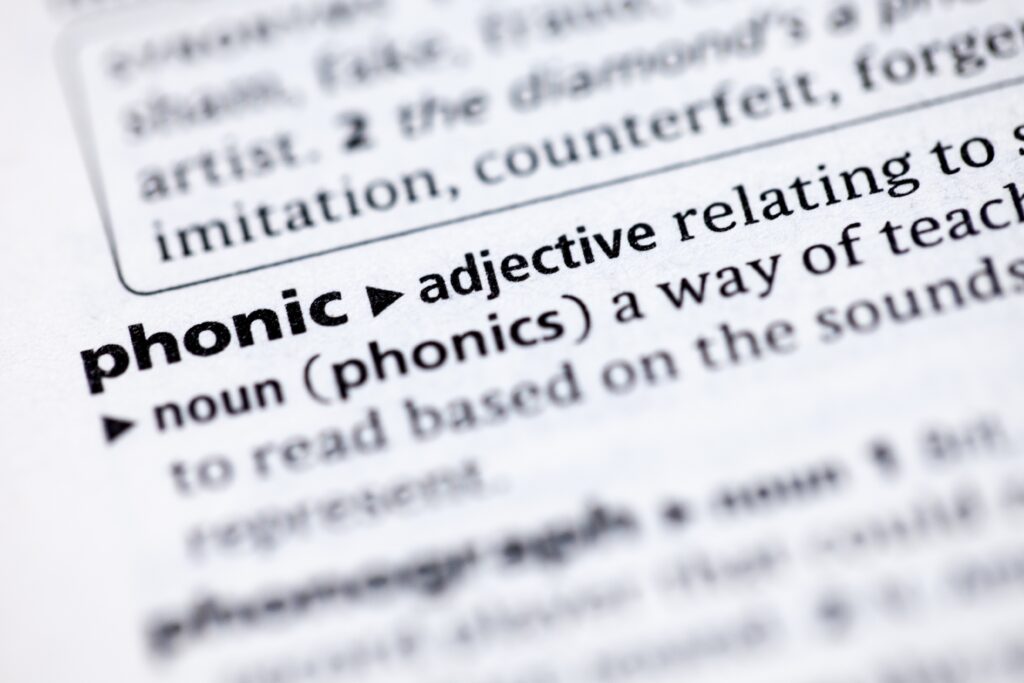Adam Caller, CEO and Founder of elite private tutoring company Tutors International, maintains that teaching phonics is not always the most effective method of teaching reading
OXFORD, UK: A landmark study written by UCL academics and published in the Review of Education on the 18th January, 2022, is calling for the government to abandon its emphasis on synthetic phonics when teaching children how to read, claiming that research suggests that it may be failing them.
Adam Caller
Adam Caller, former teacher, educational consultant and founder of Tutors International, a leading tutoring agency providing full-time residential private tuition, is keen to express his views on this topic: “The debate over which is the optimum method of teaching children how to read has raged amongst educational experts for decades. The crux of the argument centres around the use of synthetic phonics, a process where words are broken up into the smallest units of sound or phonemes, which are then blended together sequentially for reading. Professional experience has shown me that using phonics as a sole method of teaching a child how to read is not necessarily the most successful one. Our first consideration should always be to determine which method of instruction suits the individual’s learning style by finding their areas of strength and weakness. Once assessed, the teacher should then adopt the method of teaching that provides the learner with the best strategy to work out unfamiliar words”.
Phonics
From September 2014 systematic synthetic phonics (SSP), became a statutory requirement of the National Curriculum and remains a key strategy in the teaching of early reading. Caller says: “I have been disappointed by the sole use of phonics as a method of teaching children to read. I agree with the latest research which shows that emphasis on phonics is ‘not underpinned by the latest evidence’. The way in which phonics has been taught in schools has evolved significantly over the last few decades but crucially, it comes down to the fact that it is not always taught well. Added to this is the fact that teachers find it easier to teach phonics, as a technique for learning to read, rather than any other method and so we now find ourselves in a situation where the individual needs of the child are no longer of paramount importance”.
Whole Language Approach
In contrast, Caller explains, the whole language approach to reading teaches the child to work out unfamiliar words using books and stories to help contextualise written language. The child learns to focus on the understanding of a word, what it looks like and what it is represents, before looking at the word’s relationship to other words. Despite there being no scientific support that proves its effectiveness, this method became the major model for education in the United Kingdom and North America in the 1980s and 1990s.
Balanced Instruction
Balanced instruction aims to strike a balance between both the whole language approach and SSP, when teaching a child to read. Caller agrees with the latest research which shows that a combination of phonics and whole language instruction is more effective than the use of synthetic phonics in teaching reading skills. However, he reports that due to the introduction of the statutory phonics screening test in 2011, teachers are complaining that they see this more as a means of measuring school performance rather than as a way of identifying those children who may be struggling. “As a consequence, teachers are feeling increasingly pressured to abandon this combined approach in favour of a narrowed focus on phonics”, Caller states.
Accents and Phonics
Caller also makes the point that regional accents and differing dialects may have a negative impact on effective phonics’ instruction. A standardised reading test may ask a student to identify words with similar sounds. This becomes problematic because what rhymes in one dialect may not in another. “Every region of the UK has its own accent and this means that the student may become confused by the differences in spoken and written English. These difficulties can sometimes be long-lasting and may hinder the student’s progress throughout their school-life and beyond”.
Helping Dyslexic Students
Caller’s expertise in this field is the result of his specialist training in dyslexia and Attention Deficit Disorder. “Dyslexic students struggle with phonic decoding”, Caller adds. “Often, remedial programmes in schools will focus heavily on phonics, believing that more instruction in this area will eventually lead to children mastering decoding skills and so improve their reading ability. However, we have to remember that the brains of dyslexic children are wired differently and so we need to incorporate other methods of teaching into the process.” Caller maintains that pupils diagnosed with dyslexia will often respond better to the top-down, whole word approach to reading whereby the learner associates the word with the image, effectively memorising the words by its shape. Caller also refers to the Orton-Gillingham and Wilson Reading System approaches, both highly-regarded, multi-sensory methods of teaching children how to read, based on how children learn language. He concludes: “The key message to take on board is that there is no one method which works for every child when teaching reading. It is important that teachers use a wide-range of strategies and approaches to ensure that their student is able to achieve their potential and the best outcome. The main focus should be the quality of the tutoring and the relationship that the teacher builds with its student.”
How Tutors International Can Help Your Child
Caller encourages all parents whose child might be struggling with reading, or manifesting any educational difficulty, to make an enquiry. Tutors International specialises in perfectly matching full-time residential private tutors for select Clients, providing premium and specialised tuition which is tailored to your child’s needs.



